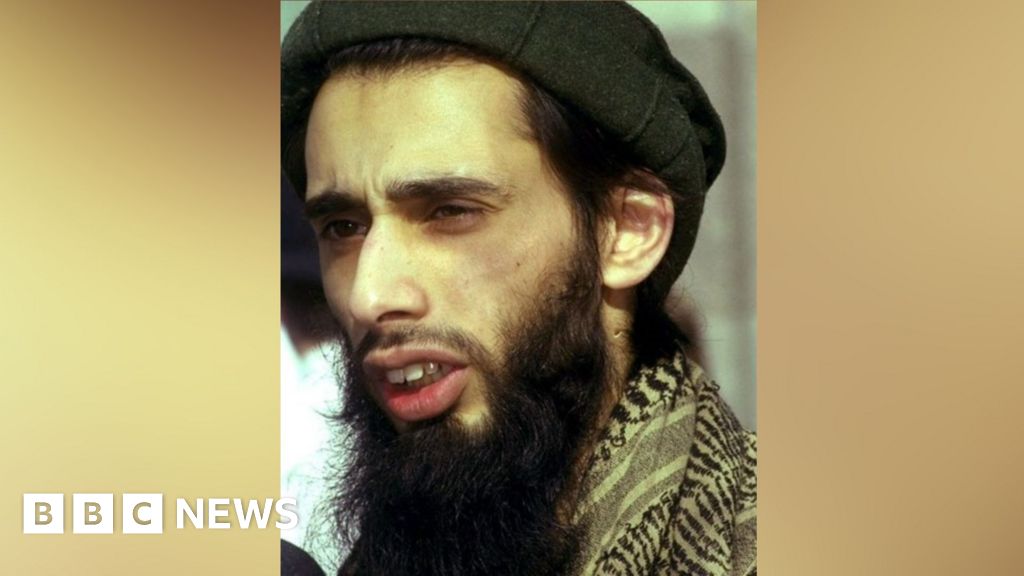Comedian Tony Hinchcliffe—whose routine at a Trump rally sparked controversy before the 2024 presidential election—is making his Netflix debut on April 7.
The 40-year-old comic’s deal with Netflix includes three comedy specials in the style of his hit podcast Kill Tony, in which aspiring comedians have 60 seconds to do a bit and then get roasted by Hinchcliffe and a panel of comics. The first special was taped at the Comedy Mothership in Austin, Texas. In addition to the three Kill Tony specials featuring various comedians and celebrity guests, Hinchcliffe will also get a one-hour stand-up special.
“We can’t wait to Netflix and Kill,” Hinchcliffe said in a Mar. 10 Netflix statement announcing the deal.
The specials are sure to raise eyebrows with many liberal viewers, but it wouldn’t be the only Netflix comedy special to push buttons. In the last few years, Dave Chappelle and Ricky Gervais have come under fire for their jokes at the expense of the trans community in their Netflix comedy specials.
Here’s what to know about Tony Hinchcliffe, the milestone moments in his career so far, and the new movement in comedy that he represents.
How Tony Hinchcliffe got famous
Hinchcliffe was raised in Youngstown, Ohio, and looked up to comedians like Jim Carrey and Don Rickles. Like many comedians, he started cracking jokes for a sad reason. As he told Variety in 2024, “Anytime my father, who would visit sometimes, would come around, my goal was to make him laugh because I thought that would make him visit more.”
In 2007, he moved to Los Angeles to try to break into show business. After opening for comics like Joe Rogan and Jeff Ross, he landed a writing gig on “Comedy Central Roast,” where he made a name for himself, gaining attention in particular for the jokes he wrote for Martha Stewart to roast Justin Bieber in 2015.
In 2013, he launched the Kill Tony podcast with Brian Redban at the Comedy Store in Los Angeles. Hinchcliffe got famous for drawing names of a “Bucket of Destiny” and then roasting them. The weekly podcast boasts more than 700 episodes.
Hinchcliffe’s brand of comedy stands apart from typical celebrity roasts in part because of who he targets, says Matt Sienkiewicz, co-author of That's Not Funny: How the Right Makes Comedy Work for Them. “Hinchcliffe is mostly roasting people you've never heard of, which can make it feel much meaner.”
The question of a “line” that comedians should or should not cross in their jokes is not a new one—and it doesn’t seem to exist for Hinchcliffe. Three years after going viral for using a slur to describe Asian-American comedian Peng Dang, he maintained that he has no regrets, telling Variety in 2024, “my stance is that comedians should never apologize for a joke, should never stop working if everyone comes after them and should never slow down. In fact, they should utilize anything that happens to them for more material.”
“The comedy world tended to be dominated by center and center-left personalities broadly, and now we're seeing a real incursion of right wing voices who use aggressive, offensive joking as cover for free speech principles,” says Nick Marx, co-author of That's Not Funny: How the Right Makes Comedy Work for Them.
Why Hinchcliffe is having a moment
Hinchcliffe went viral in October when he called Puerto Rico a “floating island of garbage” at a Madison Square Garden rally for GOP nominee Donald Trump. Celebrities like Jennifer Lopez and Bad Bunny and even some GOP strategists thought he went too far. Trump’s campaign even issued a statement, “These jokes do not reflect the views of President Trump or the campaign.” Yet others argued that people need to learn how to take a joke, with Vice President JD Vance saying, “We have to stop getting so offended.”
Hinchcliffe also gained notoriety for making homophobic remarks and comments about slavery during a roast of Tom Brady, star of the NFL’s New England Patriots, at a Netflix comedy festival in May.
“Being an outrage comic, a roast comic, an insult comic, somebody who wants to push buttons on race, anti-semitism, homophobia—that's sort of timeless and ageless,” says Sienkiewicz.
But Hinchcliffe, and similarly provocative podcaster Joe Rogan, are reaching an online audience in new ways. While liberal comedians have dominated TV, many hit right-leaning comedians built their audience on podcasts, on YouTube, and by networking with other right-wing media personalities. These comedians are a hit with young men at a time when more than half of men under 30 voted for the incumbent president Trump.
Clearly, Netflix wants more of this audience on the streaming site. When asked in March about ordering the specials from Hinchcliffe and if there were any lines for standup specials he would not cross, Netflix’s co-CEO Ted Sarandos said, “The cost of entry is you do have to be funny for enough people, so there’s a bit of a juice worth the squeeze argument... I was always a big standup comedy fan, and I knew that the art form itself always needed a safe place to try things out.” He compared the debate over Hinchcliffe to backlash in the past against boundary-pushing comedians like Lenny Bruce, George Carlin, and Richard Pryor. “I think comedians define the culture in a bunch of ways, and they do that by figuring out where the lines are and the joke is.”
As Marx puts it Hinchcliffe has a "knack for eliciting a reaction from that audience, and that's what Netflix wants. They want engagement. They are not going to be as invested in the ideology of their performer, as long as it keeps people subscribed and logged into Netflix.”

 3 hours ago
5
3 hours ago
5









